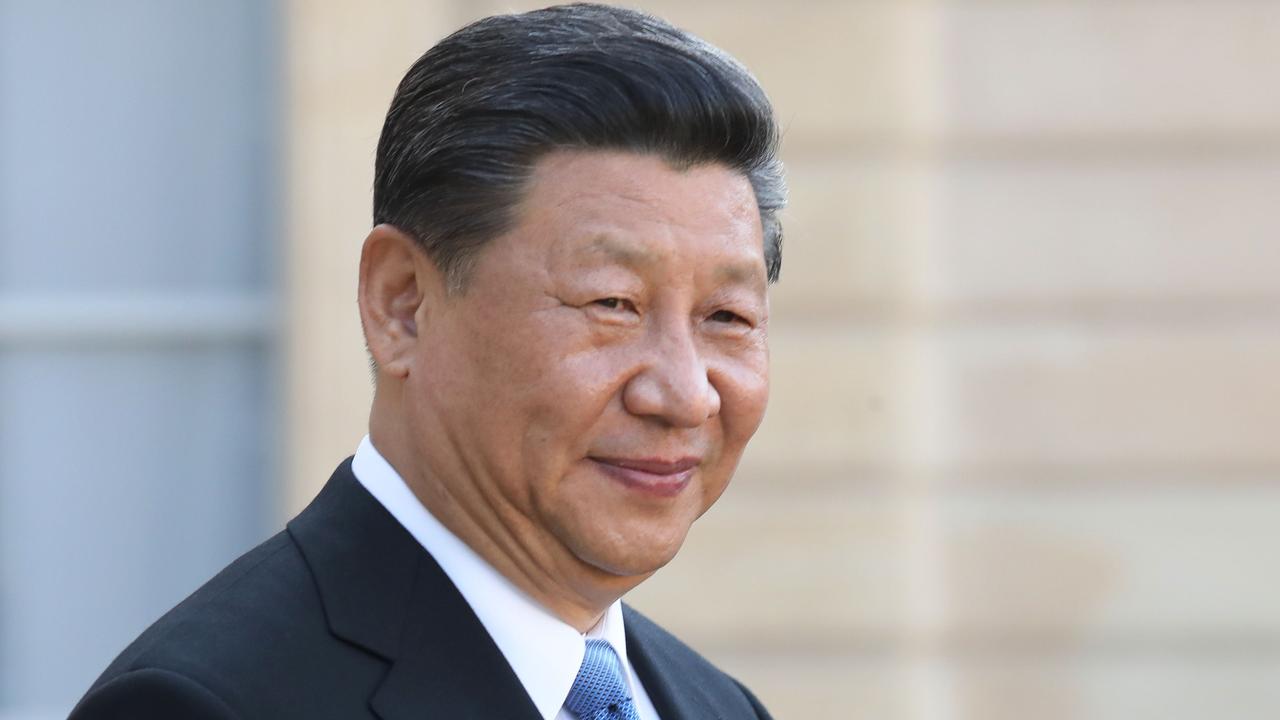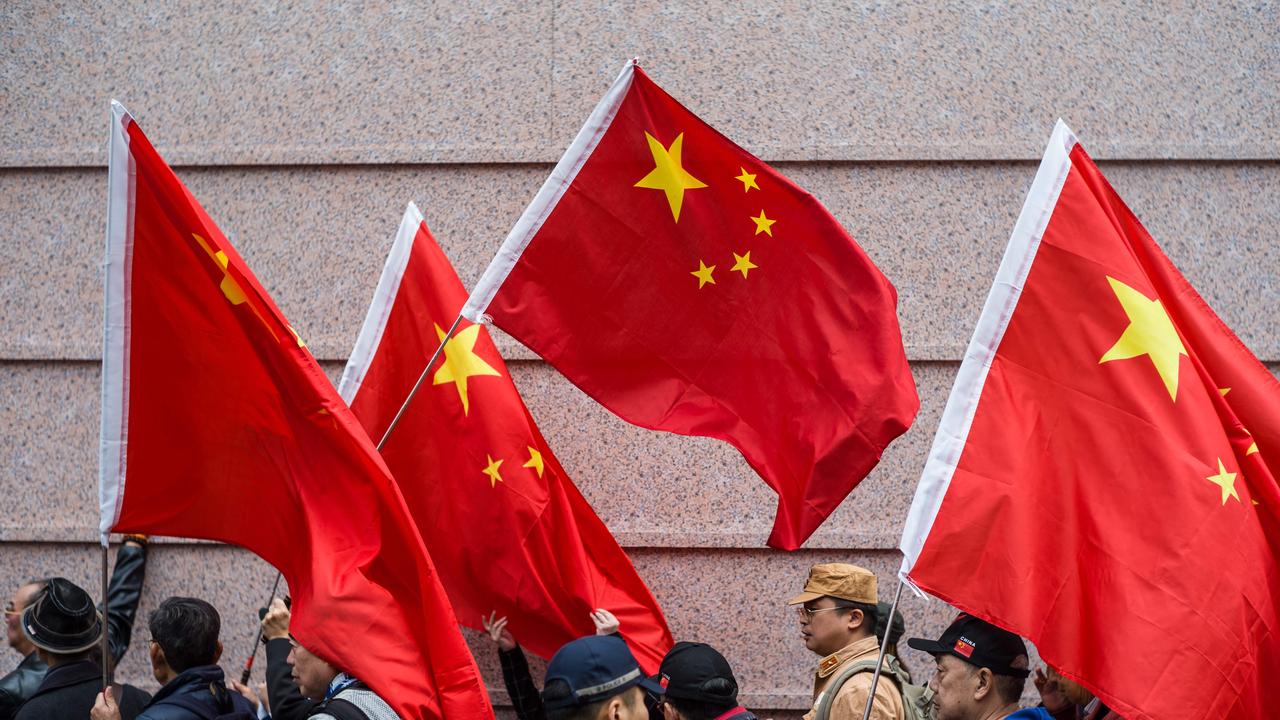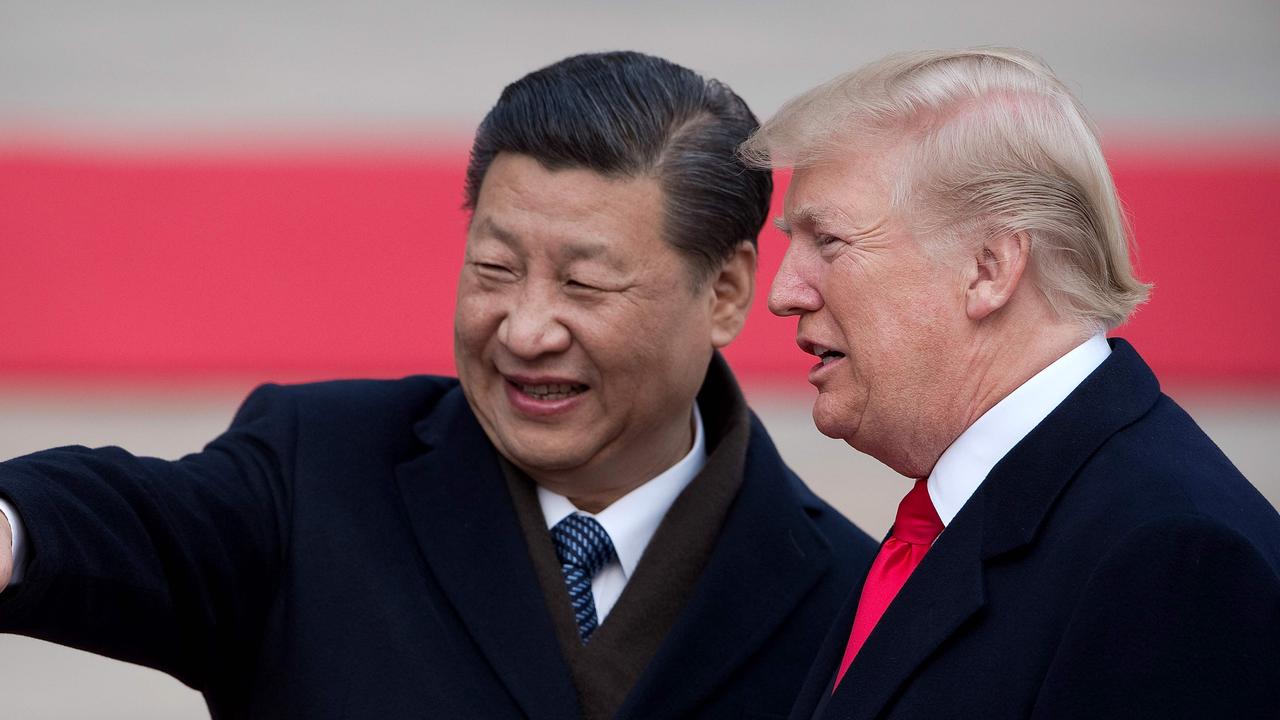Our use of credit cards could allow China to overtake the US in the global tech race, says Australian National University
The way you pay for your groceries at Woolies says a lot about why China is about to overtake the rest of the world.
While Aussie millenials can be seen convulsing in horror at the sight of a “cash only” sign and many of our older residents have a penchant carrying around large wads of cash — people in China are paying for things differently.
And, as China sets its sights on becoming the world’s technological leader, the difference in the way western nations and the Chinese pay for goods could be the thing that gives the Asian superpower the edge over the US.
That’s because people in China have practically skipped using credit cards and instead use more advanced mobile payment systems such as WeChat to pay for goods — which means their data can be more easily harvested by major companies.
That’s the view of foreign policy expert Andrew Kennedy who has written a fascinating analysis of China’s technological ambitions in the newly-released Australian National University’s 2018 China Story Yearbook .
He says that a festering “global backlash” stop it overtaking the world’s current tech overlords — the USA — but that the US could be futile in hindering the Asian superpower’s march to world domination.
He writes that China has now launched manned space flights, constructed the world’s largest radio telescope and sent the world’s first quantumcommunications satellite into space — and despite the rest of the world trying to stop it, it’s not going away anytime soon.
That’s because President Xi Jinping wants China to become one of the world’s most innovative countries by 2020 and a leading global science and technology power by 2049.
“Long-term, they want to be the best in the world in terms of technology and in terms of artificial intelligence, they want to be number one by 2030,” he said.
“They are not there now but it’s certainly not unthinkable.”

CHINA'S KEY ADVANTAGE OVER THE US
One of the key advantages China has — particularly in terms of AI — is the sheer wealth and quality of data it has at its fingertips.
And, this comes down to the fact that in western nations, like Australia, are obsessed with using credit cards to pay for everything.
“China has an advantage in terms of data, because data is the key to developing artificial intelligence, you can only make your algorithms as good as the data will allow you to make them, so you need a lot of interconnected, high quality data,” said Mr Kennedy.
“China not only has a lot of data because it has a lot of people and a lot of people online, but it also has high quality data because China is leading the world in its use of mobile payments.”
He says people in China basically skipped using credit cards and went straight from using cash to paying for goods using their smartphones — whereas Western country’s are still using cards.
“All that data becomes available to Chinese companies,” he said.
“Apple Pay and Google don’t have access to that same kind of data.”
HOW CHINA IS SHOOTING ITSELF IN THE FOOT
Despite the bold steps China has taken in recent years, Mr Kennedy told news.com.au there are a number of internal factors that could hinder its ambitions.
One of them is the slowdown of its economy.
“The economy has slowed down and some of the big Chinese IT firms have been letting people go,” he said.
“They just aren’t able to sustain the same sort of growth that they had before.”
He says this is because Chinese companies are dependent on the Chinese economy and if that goes south, then they are left exposed.
“The incentive to innovate when you’re already in the state’s good praises is reduced,” he said.
“The domestic Chinese firms that are favoured by the state tend not to do well for this very reason. They have a reverse Midas touch if you will.”

Another issue potentially hindering China in its quest for domination is the tightening political controls and its censorship of the internet, according to Mr Kennedy.
“In recent years, censorship of ideas and resources and closer policing of political attitudes among university faculty members have generated concern,” he wrote in the China Story Yearbook .
“At a meeting of China’s elite scientists in 2016, one stated that internet controls were imposing ‘very great losses’ on Chinese science.
“Despite this and other expressions of concern, China’s leaders have continued to tighten their control over the internet, including the banning of non-licensed virtual private networks in March 2018.”
WHY CHINA IS COPPING A GLOBAL BACKLASH
China’s ambitions are also being hindered by external forces and Mr Kennedy believes that some of this is down to concerns over national security.
“Some countries don’t want certain kinds of technology or knowledge to be transferred to China because it could be used for military purposes,” he said.
“As China has become more capable, that’s become more of a pressing concern.”
Another issue which has prompted the world to push back against China could be its ambitious 10-year “Made in China 2025” (MIC2025) plan.
Launched in 2015, it aims to turn China away from being the world’s “factory” — producing cheap, low quality goods due to lower labour costs — and turn it into a global leader in higher value products and services such as information technology and robotics.

“This presents a clear challenge to traditional hi-tech manufacturers including Japan, Germany, and South Korea,” Mr Kennedy wrote.
“In the US, meanwhile, when the Office of the US Trade Representative released its report on China’s trade practices in March 2018, it mentioned MIC2025 an astounding 112 times.”
Trump’s first set of tariffs on Chinese exports, enacted shortly thereafter, targeted the sectors prioritised in MIC2025.
The Trump administration is leading the backlash with a series of higher tariffs and tighter technology controls, but in the past year, a number of developed countries have also started tightening restrictions on Chinese hi-tech investments
Mr Kennedy said other nations could be doing this because they want to control the industries that will shape the future.
“I think it’s going to be pretty hard to stop China if they play their cards right and they get their internal reforms right,” he said.
“There’s no ultimate guarantee that they will, but internal problems are the biggest problem for China and if they can sort them out, they are going to be a powerhouse — countries and companies are going to want to collaborate with them.
“But if they can’t do this, it’s going to be a real struggle for them even without all the external challenges they face.”
You can order the China Story Yearbook online.




